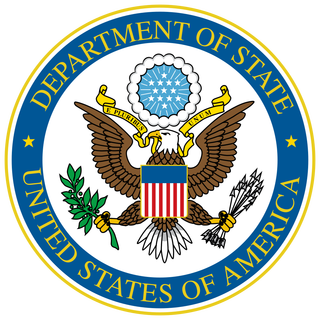
U.S.-Greece Relations
The United States appointed its first Consul to Greece in 1837, following Greece’s independence from the Ottoman Empire, and established diplomatic relations with Greece in 1868. After World War II, the United States contributed hundreds of millions of dollars to rebuild Greece’s buildings, agriculture, and industry as part of the Marshall Plan. Today, an estimated three million Americans resident in the United States claim Greek descent. This large, well-organized community cultivates close political and cultural ties with Greece.
Greece is an important partner of the United States on many policy priorities. As a leader in the region, Greece has been an ally to the U.S. in promoting Balkan stability and economic development, supporting Turkey’s bid for accession to the European Union, and supporting the diversification of Europe’s energy supplies. Greece’s geostrategic position also makes it an important ally in engagement and dialogue with the Muslim world. Greece is the primary entry point into the Schengen visa area for migrants from the Middle East, North and Sub-Saharan Africa, and Southwest Asia.
Greece occupies a strategic location in the Eastern Mediterranean on the southern flank of the North Atlantic Treaty Organization (NATO). The U.S.-Greece mutual defense cooperation agreement provides for the operation by the United States of a naval support facility at the deep-water port and airfield at Souda Bay in Crete. Greece contributes to NATO operations in Afghanistan and Kosovo, as well as to counterterrorism and counter-piracy maritime efforts.
U.S. Assistance to Greece
U.S. assistance fosters strong bilateral military-to-military relations and contributes toward the interoperability of Greek forces within NATO.
Bilateral Economic Relations
Greece is a member of the European Union and the Eurozone. The United States has expressed consistent strong support for Greece’s ongoing effort to restore fiscal stability, implement structural reforms, recover competitiveness and restart growth. There are no significant non-tariff barriers to U.S. exports. The top U.S. exports to Greece are defense articles, although. U.S. business activity is expected to grow in the tourism development, medical, construction, food processing, specialty agriculture and packaging and franchising sectors. U.S. companies are interested and involved in Greece's ambitious but slow-moving privatization efforts. Further deregulation of Greece's energy sector and the country's central location as a transportation hub for Europe may offer additional opportunities in electricity, gas, refinery, and related sectors. Greece participates in the Visa Waiver Program, which allows nationals of participating countries to travel to the United States for certain business or tourism purposes for stays of 90 days or less without obtaining a visa.
Greece's Membership in International Organizations
Greece and the United States belong to a number of the same international organizations, including the United Nations, North Atlantic Treaty Organization, Euro-Atlantic Partnership Council, Organization for Security and Cooperation in Europe, Organization for Economic Cooperation and Development, International Monetary Fund, World Bank, and World Trade Organization. Greece also is a permanent observer to the Organization of American States.
Source: U.S. Department of State
The United States appointed its first Consul to Greece in 1837, following Greece’s independence from the Ottoman Empire, and established diplomatic relations with Greece in 1868. After World War II, the United States contributed hundreds of millions of dollars to rebuild Greece’s buildings, agriculture, and industry as part of the Marshall Plan. Today, an estimated three million Americans resident in the United States claim Greek descent. This large, well-organized community cultivates close political and cultural ties with Greece.
Greece is an important partner of the United States on many policy priorities. As a leader in the region, Greece has been an ally to the U.S. in promoting Balkan stability and economic development, supporting Turkey’s bid for accession to the European Union, and supporting the diversification of Europe’s energy supplies. Greece’s geostrategic position also makes it an important ally in engagement and dialogue with the Muslim world. Greece is the primary entry point into the Schengen visa area for migrants from the Middle East, North and Sub-Saharan Africa, and Southwest Asia.
Greece occupies a strategic location in the Eastern Mediterranean on the southern flank of the North Atlantic Treaty Organization (NATO). The U.S.-Greece mutual defense cooperation agreement provides for the operation by the United States of a naval support facility at the deep-water port and airfield at Souda Bay in Crete. Greece contributes to NATO operations in Afghanistan and Kosovo, as well as to counterterrorism and counter-piracy maritime efforts.
U.S. Assistance to Greece
U.S. assistance fosters strong bilateral military-to-military relations and contributes toward the interoperability of Greek forces within NATO.
Bilateral Economic Relations
Greece is a member of the European Union and the Eurozone. The United States has expressed consistent strong support for Greece’s ongoing effort to restore fiscal stability, implement structural reforms, recover competitiveness and restart growth. There are no significant non-tariff barriers to U.S. exports. The top U.S. exports to Greece are defense articles, although. U.S. business activity is expected to grow in the tourism development, medical, construction, food processing, specialty agriculture and packaging and franchising sectors. U.S. companies are interested and involved in Greece's ambitious but slow-moving privatization efforts. Further deregulation of Greece's energy sector and the country's central location as a transportation hub for Europe may offer additional opportunities in electricity, gas, refinery, and related sectors. Greece participates in the Visa Waiver Program, which allows nationals of participating countries to travel to the United States for certain business or tourism purposes for stays of 90 days or less without obtaining a visa.
Greece's Membership in International Organizations
Greece and the United States belong to a number of the same international organizations, including the United Nations, North Atlantic Treaty Organization, Euro-Atlantic Partnership Council, Organization for Security and Cooperation in Europe, Organization for Economic Cooperation and Development, International Monetary Fund, World Bank, and World Trade Organization. Greece also is a permanent observer to the Organization of American States.
Source: U.S. Department of State




 RSS Feed
RSS Feed